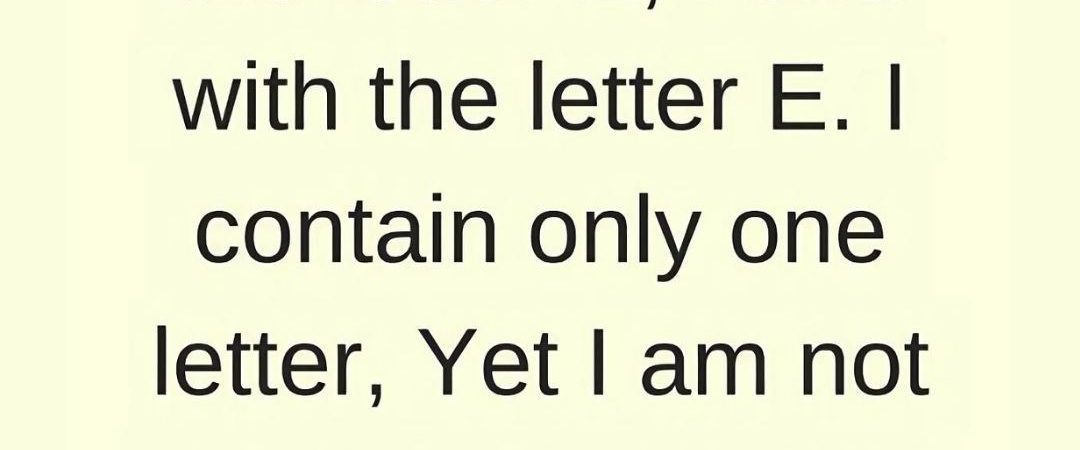Solving riddles isn’t just about finding the right answer; it’s a test of our intellect, attention to detail, and logical thinking. Each time we crack a riddle, it’s a victory for our mental agility. So, the next time you face a riddle, embrace the challenge and enjoy the thrill of unlocking its secrets—you might just surprise yourself.
Here’s a classic riddle to test your mind: What word starts and ends with the letter “E,” contains only one letter, but isn’t the letter “E” itself?
At first, it sounds impossible. The clues point to a word that begins and ends with “E,” which narrows down our options. But then, it says it “contains only one letter,” throwing us off track. What could this mean?
The trick lies in how we interpret the word “letter.” It doesn’t mean the letter “E”—it refers to a physical letter, like the ones you mail. This shifts our focus entirely.
Now, let’s break it down: the word must be something that holds a letter, starts and ends with “E,” and isn’t “E” itself. The answer? “An envelope.” An envelope is a container for a letter, it starts and ends with “E,” contains only one letter (the letter inside it), and is not the letter “E.”
This riddle is a perfect example of how language can twist our thinking and encourage us to look at things from different angles. So, next time you’re stumped by a puzzle, keep an open mind—you might just uncover the genius inside you.


